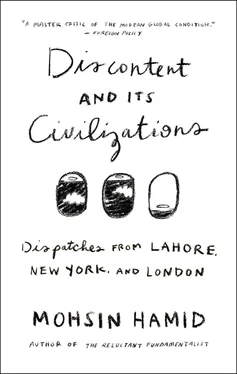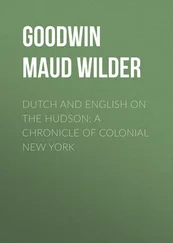To my mind, the “war on terror” is not, at its heart, an actual war. Yes, it has involved wars in Afghanistan and Iraq. And it has involved violence of various types and intensities in innumerable other places: Pakistan and Britain, America and Russia, Libya and Yemen, India and Indonesia, Spain and Kenya — the list goes on and on. But wars, insurgencies, cross-border raids, and terrorism characterized the twentieth century, too. What distinguishes the “war on terror” is that it is a war against a concept, not a nation. And the enemy concept, it seems to me, is pluralism.
Pakistan and other Muslim-majority countries have hardly been unique in their struggles to accommodate diversity. In the United States and Europe, the “war on terror” has been accompanied by a great backlash against migrants. Actual walls are being constructed along the southern border of the US, with drones deployed overhead, and some American states are legislating draconian anti-migrant restrictions. Anti-migrant parties are in the ascendant across the EU, and Britain is considering leaving the bloc, in large part because of anger over migrants.
In many places, the past fifteen years have been a time of economic turmoil and widening disparities. Anger and resentment are high. And yet economic policies that might address these concerns seem nearly impossible to enact. Instead of the seeds of reform, we are given the yoke of misdirection. We are told to forget the sources of our discontent because something more important is at stake: the fate of our civilization.
Yet what are these civilizations, these notions of Muslim-ness, Western-ness, European-ness, American-ness, that attempt to describe where, and with whom, we belong? They are illusions: arbitrarily drawn constructs with porous, brittle, and overlapping borders. To what civilization does a Syrian atheist belong? A Muslim soldier in the US army? A Chinese professor in Germany? A lesbian fashion designer in Nigeria? After how many decades of US citizenship does a Spanish-speaking Honduran-born couple, with two generations of American children and grandchildren descended from them, cease to belong to a Latin American civilization and take their place in an American one?
Civilizations are illusions, but these illusions are pervasive, dangerous, and powerful. They contribute to globalization’s brutality. They allow us, for example, to say that we believe in global free markets and, in the same breath, to discount as impossible the global free movement of labor; to claim that we believe in democracy and human equality, and yet to stymie the creation of global institutions based on one-person-one-vote and equality before the law.
Civilizations encourage our hypocrisies to flourish. And by so doing, they undermine globalization’s only plausible promise: that we be free to invent ourselves. Why, exactly, can’t a Muslim be European? Why can’t an unreligious person be Pakistani? Why can’t a man be a woman? Why can’t someone who is gay be married?
Mongrel. Miscegenator. Half-breed. Outcast. Deviant. Heretic. Our words for hybridity are so often epithets. They shouldn’t be. Hybridity need not be the problem. It could be the solution. Hybrids do more than embody mixtures between groups. Hybrids reveal the boundaries between groups to be false. And this is vital, for creativity comes from intermingling, from rejecting the lifelessness of purity. If there were only one human left, our species would die.
—
WHEN I WAS YOUNGER, I thought of being a migrant and being foreign as things that made me different, an outsider. Now, at the age of forty-three, I think these experiences are increasingly universal.
On our globalizing planet, where the pace of change keeps accelerating, many of us are coming to feel at least a bit foreign, because all of us, whether we travel far afield or not, are migrants through time. Even if you are eighty and have never left your hometown, yours has become another country from that of your childhood.
Perhaps, as we search for principles that can bind together our diverse and interconnected world, we should explore the empathy that arises from such a shared experience. It may be that as we examine our position as temporal beings, as individuals who represent a folding together of days, years, and decades — as a person who is at once a child of the seventies, say, and a mother of the noughties — a sense of our common hybridity may start to become apparent. To be a human being and to be a hybrid being are the same thing.
In my writing, I have tried to advocate the blurring of boundaries: not just between civilizations or people of different “groups,” but also between writer and reader. Co-creation has been central to my fiction, the notion that a novel is made jointly by a writer and a reader. Co-creation is central to my politics as well. I believe that we co-create the overlapping societies we belong to, large and small, and that we should be free to try to invent new ways of being and interacting.
At some level, I suppose my personal need to write fiction comes from my inability entirely to accept our world as it is. When I write a novel, I am disappearing into another world, one of my own devising. But I don’t desire to remain there, alone, apart, forever. I want to bring my imagined world back into our world, to share it, to have a reader enter it and shape it, to open a space for experimentation and imagination that crosses the boundaries of the self, of the real, of time. I believe that the hope of invention animates the arts. And I feel that same hope as I think of people coming together to invent a world that is post-civilization, and hence infinitely more civilized.
—
THIS BOOK IS ORGANIZED into three sections: life, art, and politics. This is not because I hold these categories to be separate: I think the opposite, that the personal is political and vice versa, and my own art partakes strongly of both. Rather, the structure here is intended as a possible journey.
The pieces in the first section, titled “Life,” are arranged in subsections that adopt the age-following order of chapters in a memoir. The second section, “Art,” is divided into subsections more thematically. And the final section, “Politics,” is composed of subsections that retain the basic chronology of when the pieces were written, and therefore tracks the evolution of my perspective, starting in 2000 and ending in the present.
I wanted the experience of reading this book to be like developing a relationship. The first section would allow you, the reader, to get to know me a little; in the second section, you would see how I think about and approach the task of writing; and in the third, you would encounter me writing some opinions on the world we share.
All that said, you, too, have been on your own path of invention these past fifteen years. You, too, are a foreign correspondent in your own right. So how (and whether) you now proceed is, of course, up to you. That’s the thing about co-creation. To exist, it requires the presence of more than one point of view.
IN DECEMBER 1980, at the age of nine, I moved back to Pakistan for the first time.
We touched down at Lahore, in those less security-conscious days when it was still a place where families strolled to the tarmac to greet deplaning passengers. Ronald Reagan had just beaten Jimmy Carter in the election for president of the United States, the Soviet Union was about to mark the first anniversary of its invasion of Afghanistan, racoon-eyed General Zia-ul-Haq was ensconced in Islamabad as Pakistan’s dictator, and I’d lost my Urdu.
It’s a funny thing to lose your first language. I was an early talker, chirping along in full sentences and paragraphs well before I turned two, and I have a scar to prove it. In the summer of 1973, Zulfikar Ali Bhutto was campaigning to become prime minister of Pakistan, and I picked up the habit of climbing onto the dining table and holding forth in the manner of the speeches I’d heard him make on PTV: “When I become prime minister…”
Читать дальше












